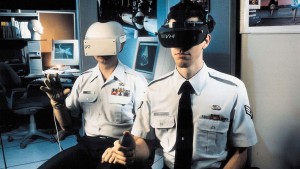What industries will virtual reality (VR) disrupt?
Virtual Reality | April 11, 2015
Industries that will be disrupted by virtual reality
Here is the answer from Maria Korolov:
The Internet gave us a very efficient way to disseminate information, and disrupted all industries based around information scarcity and communication channel scarcity. Shopping, news, education, media, communications of all kinds have been upended.
Virtual reality will give us an efficient way to communicate and share experiences. The industries that rely mostly strongly on managing access to experiences are likely to be ones most affected.
I don’t believe that virtual reality will replace actual, real experiences, no more than the Internet did away with paintings and museums just because we can see them online, or with live concerts just because we can listen to the music on our iPods, or with business travel just because we can do video conferences.
But it will dramatically expand the audience for many experiences, and even as some real experiences will be replaced by virtual ones, the bigger total audience will mean that the real experiences will still be valued.
Take a random example — late night talk shows. You can watch them online (or on TV, I guess, if you’ve misplaced all your Internet-connected devices) or you can be part of the studio audience. Virtual reality would allow you to be part of a virtual studio audience, see the show as its being taped, shake the host’s virtual hand and she comes out to meet everyone. This will allow the show to build a stronger connection to its viewers — and create an even bigger appetite for the “real” thing.
Imagine how politics will be transformed if a politician can virtually shake the hand of every single potential voter. How fundraising will be transformed if potential donors can stand on the site of a disaster and watch a tsunami come crashing down around them.
Education will be transformed. The Internet, and Wikipedia, and online classes have already dramatically changed how we learn just about anything. Virtual reality will add in experience-based learning, as we will be able to practice skills in a simulated environment. And networking, as we interact with other students and instructors inside virtual spaces.
Finally, virtual reality will allows to bring to life things we have previously been able to only imagine. What life was like throughout history. What a car or building or city will look like before its built. What a house we’re thinking of buying will look like after we redecorate it. Existing industries that try to accomplish this through charts, photos, videos or other non-immersive means will be significantly disrupted.
Just like Maria said, we believe that virtual reality being used for educational purposes is a great thing since it’s adding experience-based learning. Learning history or sciences through this medium is the most engaging and memorable way.
Subscribe to our newsletter
We write about the use of Virtual Reality for non-gaming applications.










